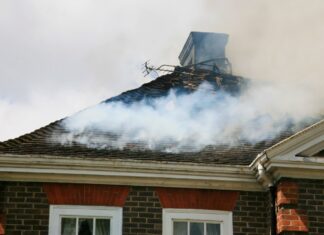Burlington County Freeholders today gave final approval to an “energy conservation lease bank” which will be able to provide low-cost loans within the next six to eight weeks to towns and schools that undertake green energy capital improvement projects.
The bank is authorized to issue a total $10 million in loans. Those loans will carry with them the county repayment “guaranty,” which enables local entities to secure lower interest as a result of the County’s strong “AA” bond rating. Loan terms would be up to 15 years.
Freeholders have been working cooperatively with the Burlington County Bridge Commission on a “Greenbacks To Go Green” shared services initiative that has opened the door for green energy grants and savings to public entities in the County.
Earlier today the State’s Local Finance Board approved creation of the lease bank. The next step will be a competitive process to select a bank to finance the loans.
“Hopefully, this will encourage more towns and schools to check out the cost-savings advantage of green energy upgrades,” said Freeholder Director Bruce Garganio.
“As we have said from the get-go, this is really a ‘two-fer,’” he added. “Towns not only realize utility cost savings, but they can also saving on the cost of financing the capital improvements. At the end of the day, the real winners are taxpayers.”
At last count, some 64 local units, mostly municipalities and school districts, were participating in initial phases of the Greenbacks program.
The most immediate candidates for loans would include five entities that are participating in a pilot program being administered by the Commission. These include Burlington Township School District, Delanco, Mount Holly, Palmyra and Willingboro.
The lease bank essentially sets in place a revolving loan program, making it possible for loans to be issued on a continuing basis as funds are repaid. One other advantage is that loan processing can be accelerated.
“The game plan has been to encourage towns, schools and other local entities to take advantage of state-funded energy audits, and identify projects that can reduce utility costs,” Garganio said. “The lease bank gives them the financing they will need to undertake chosen projects.”
During a freeholder conference last month, Financial Consultant Peter Nissen said that one of the potential pilot participants, Palmyra Borough, could undertake $247,500 in identified capital improvements and would realize projected energy savings of $390,000 over 15 years. At the same time, the cost of financing would be an estimated $10,000 less through a lease bank, than through more traditional bond financing.
Over the past 10 years, the freeholder board has worked cooperatively with the Commission to provide low-cost aggregate bond financing to the towns and other local entities on major capital projects, ranging from road improvements to land acquisition to large equipment purchases.
A total $481 million has been issued in bonds to 26 towns and other local units, resulting in $14 million in interest and other finance costs savings.









